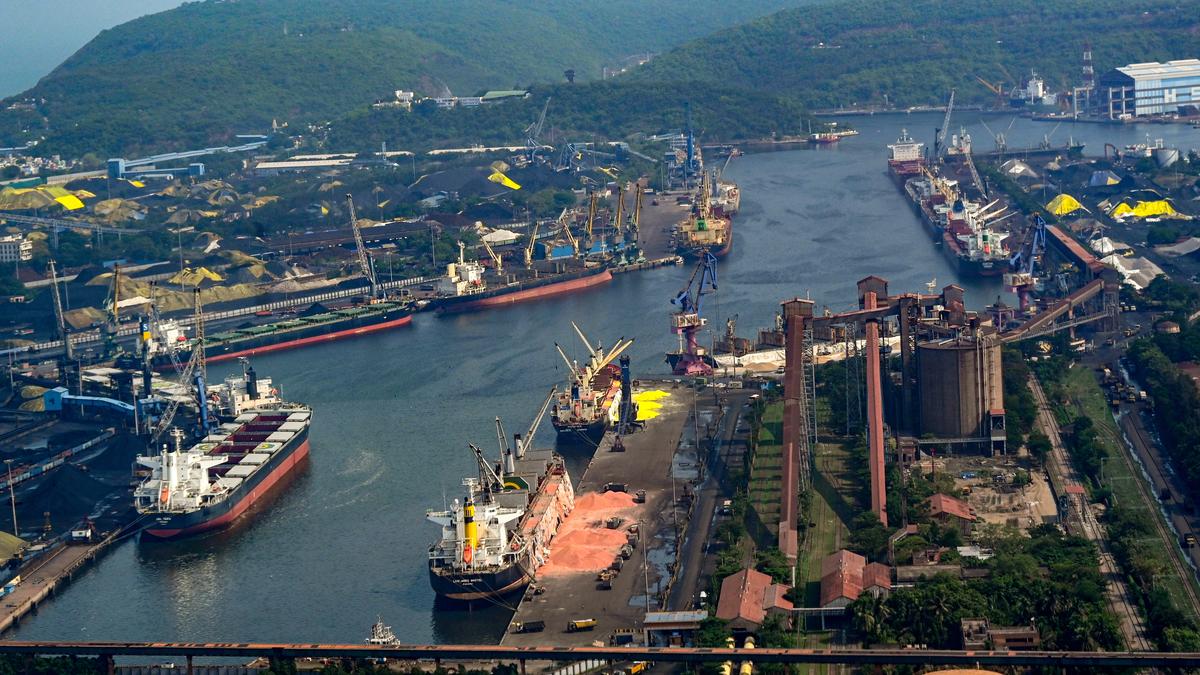
Bangladesh eyes Vizag port as transit hub for its trade with Sri Lanka
The Hindu
Successful talks between India and Bangladesh could enhance trade through east coast ports along the Bay of Bengal.
If the ongoing talks between the Ministry of Shipping (MoS), the Government of India, and its Bangladesh counterpart are successful, further improvement of trade between the two countries will be possible through waterways (ports) on the east coast along the Bay of Bengal.
The Bangladesh MoS team led by S.M. Mostafa Kamal (joint secretary) embarked on an official tour of four key ports on the east coast, including the Krishnapatnam port in Nellore and the Visakhapatnam port in Andhra Pradesh. It had discussions with the managements of the two ports to understand their activities, capabilities and opportunities to further enhance their trade, the VPA (Visakhapatnam Port Authority) sources said.
“The Bangladesh MoS team first visited the Chennai port in Tamil Nadu, and then reached Krishnapatnam before coming to Vizag. They interacted with our VPA team led by Chairman M. Angamuthu. They left for Kolkata port for similar discussions before taking decisions for future needs. We understood that the Bangladesh MoS is keen on considering our VPA as their transit port for their existing operations with Sri Lanka as their Chittagong port is about 800 nautical miles across the Bay of Bengal to our Vizag port,” a senior Visakhapatnam port official told The Hindu.
The VPA already has Bangladesh traffic (handling cargo). In the financial year 2023-24, 2,13,466 tonnes of both cargo export (2,03,769 tonnes) and import (9,697 tonnes) was handled. However, it was less than the previous year cargo traffic which stood at 2,48,559 tonnes — exports 2,17,277 tonnes and imports 31,282 tonnes.
Commodity-wise, the trade with Bangladesh is mainly in containers, fuel oil, liquid ammonia, maize, rice, stone aggregate, stone chips, quartzite (lump) and wheat, the official said.

The Congress government including controversial farm legislations that had been brought in and later withdrawn by the BJP-led government at the Centre as the reference points for the Karnataka Agriculture Prices Commission (KAPC) has ruffled the feathers of farmers’ leaders and agricultural economists who had expressed their ideological support to the Congress.












